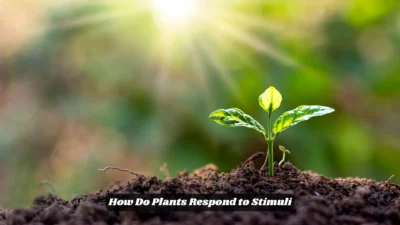You’re walking into a store in Japan, and suddenly you hear it: Irasshaimase.
It’s loud, cheerful, and directed at you. You pause for a moment, unsure how to respond. Do you say something back? Smile? Nod?
You’re not alone in this confusion. Many people search for the right way to respond to irasshaimase, unsure what’s polite, normal, or expected. Luckily, this guide solves that for you.
Different settings call for different ways to respond. Whether you’re in a formal setting, with friends, or working in Japan,
you’ll find the best way to react. Here are helpful, simple, and varied ways to respond to irasshaimase.
Formal Ways to Say Irasshaimase
Use these in high-end stores, traditional restaurants, or any situation where politeness is a must.
- Thank you for having me
- It’s a pleasure to be here
- I appreciate the warm welcome
- I’m honored to visit
- Thank you kindly
- I’m grateful for your hospitality
- It’s lovely to be here
- My sincere thanks
- I’m thankful for your welcome
- I feel truly welcomed
- I appreciate your kindness
- It’s very kind of you
- I feel at ease already
- Much obliged
- Your welcome is appreciated
- I humbly accept your greeting
- Thank you for receiving me
- Your hospitality means a lot
- I’m happy to be here
- With gratitude, I thank you
- I’m pleased to meet you
- So kind of you
- Very thoughtful of you
- Such a warm welcome
- This place feels so inviting
- Thank you for your reception
- I value your greeting
- That’s very courteous
- You’re very welcoming
- Thanks for such a nice greeting
- I truly appreciate being here
Informal Ways to Say Irasshaimase
Use these when you’re in everyday spots like cafés, markets, or while shopping with friends.
- Hey
- Hi there
- Thanks
- Just looking
- Yo
- Sup
- What’s up
- How’s it going
- I’m good, thanks
- Chill, thanks
- All good here
- Thanks a bunch
- Appreciate it
- Cool, thanks
- Oh hey
- That’s nice
- No worries
- All set
- Thanks, I’m browsing
- Just checking things out
- Hey, thanks
- Looks great in here
- Sweet spot
- Cool place
- Love the vibe
- This is nice
- I’m just hanging out
- Got it, thanks
- Alright
- Okay, cool
- Thanks for having me
Idiomatic Ways to Say Irasshaimase
These are fun, natural expressions often used to sound more like a local.
- Feels like home already
- Right where I belong
- Stepping into comfort
- Home sweet home
- This place gets me
- Feels like I’ve been here before
- Walking into warmth
- Like walking into a hug
- Hit the right spot
- Love at first step
- That’s some welcome
- Now that’s a greeting
- Talk about warm vibes
- That set the tone
- Greeted in style
- Off to a good start
- They sure roll out the carpet
- It’s got good energy
- Just the welcome I needed
- Right on the vibe
- Walking into good times
- This place knows how to greet
- Got that special touch
- Sets the mood just right
- Made me smile
- Mood: welcomed
- That made my day
- Just what I needed
- They nailed the greeting
- Came in smiling already
- Mood lifted on entry
Professional Ways to Say Irasshaimase
Perfect for meetings, workplace visits, and networking events.
- Thank you for the introduction
- I appreciate your welcome
- Thanks for the warm reception
- It’s great to be here
- I look forward to working together
- I’m pleased to be part of this
- Thanks for having me on board
- Grateful to be here
- It’s a pleasure to join you
- I’m happy to be part of the team
- I feel welcomed
- Thanks for including me
- Looking forward to this experience
- Glad to be here today
- Honored to attend
- I value the opportunity
- Ready to collaborate
- Thank you for receiving me
- Pleased to meet everyone
- Let’s have a great meeting
- Thanks for the warm start
- I appreciate the hospitality
- Looking forward to our work
- Thanks for your kind words
- I feel included already
- Eager to contribute
- Thanks for welcoming me
- Grateful to be invited
- I feel at home here
- I’m glad to connect
- I’m looking forward to this journey
Conclusion
Knowing how to respond to irasshaimase is more than just polite—it shows respect and awareness of culture. The way you reply can shape your experience and relationships in Japan. Choose the right tone based on where you are. Whether it’s formal, casual, idiomatic, or professional, now you have over 120 ways to respond with confidence. Practice them. Use them. Enjoy the welcoming spirit of Japan, the right way.

Emilly Dickson is a renowned Urdu author, researcher, and storyteller known for his insightful take on contemporary social issues. His writing style is simple yet thought-provoking, engaging readers while encouraging them to reflect on deeper themes.
Professionally, he is an academic with a PhD in Urdu Literature and has been involved in teaching for over a decade. His works have been published in various national and international literary journals. Dr. Alvi is also a mentor to aspiring writers and an active participant in literary forums and events.
Selected Works:
-
The Screams of Silent Words
-
Travelers of Shadows
-
A Story Stuck on the Lip




